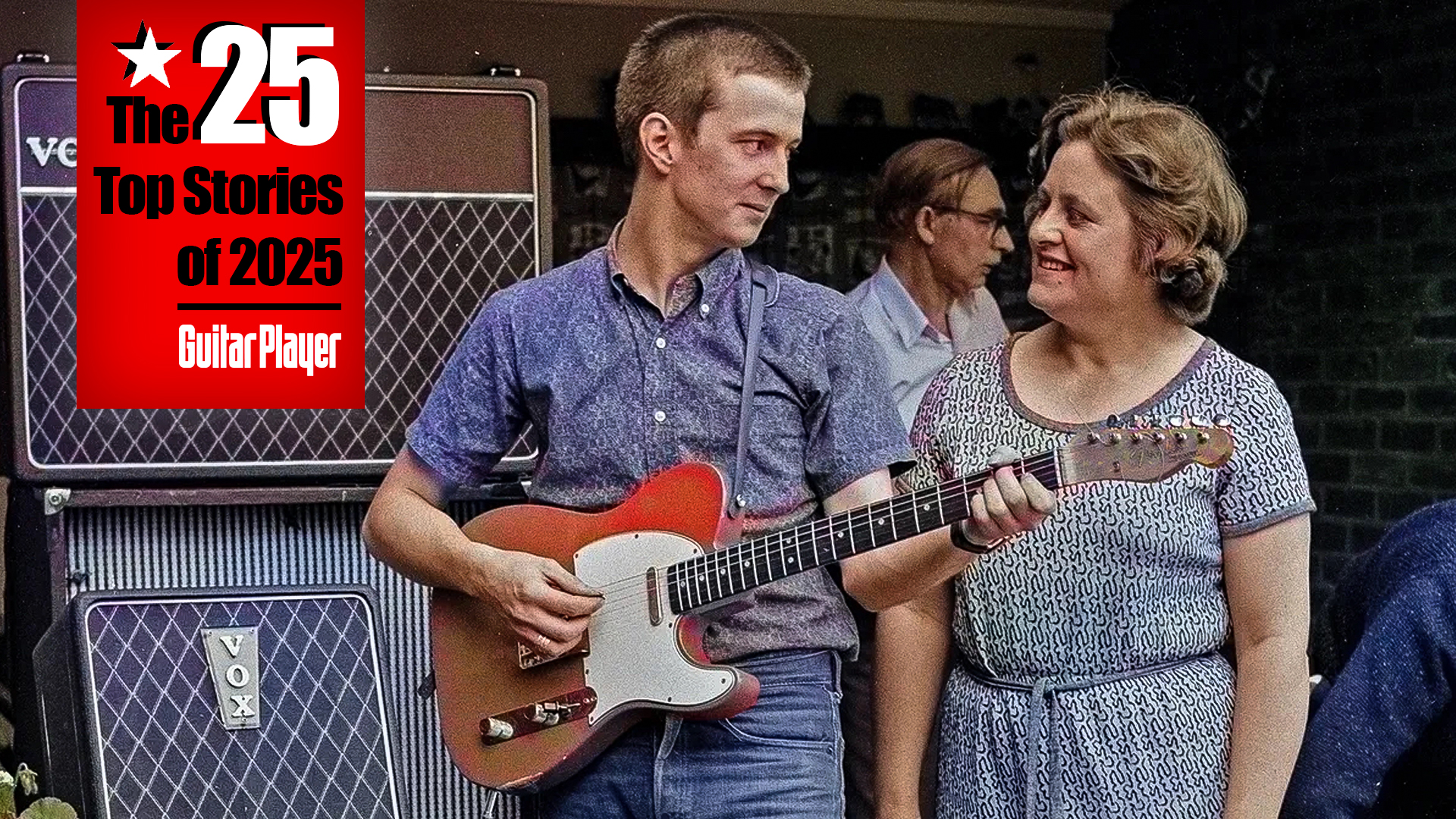“First of All, There Was No Guitar Player Who Had Ever Played Like That”: Van Halen Producer Ted Templeman Tells ‘GP’ How It All Began
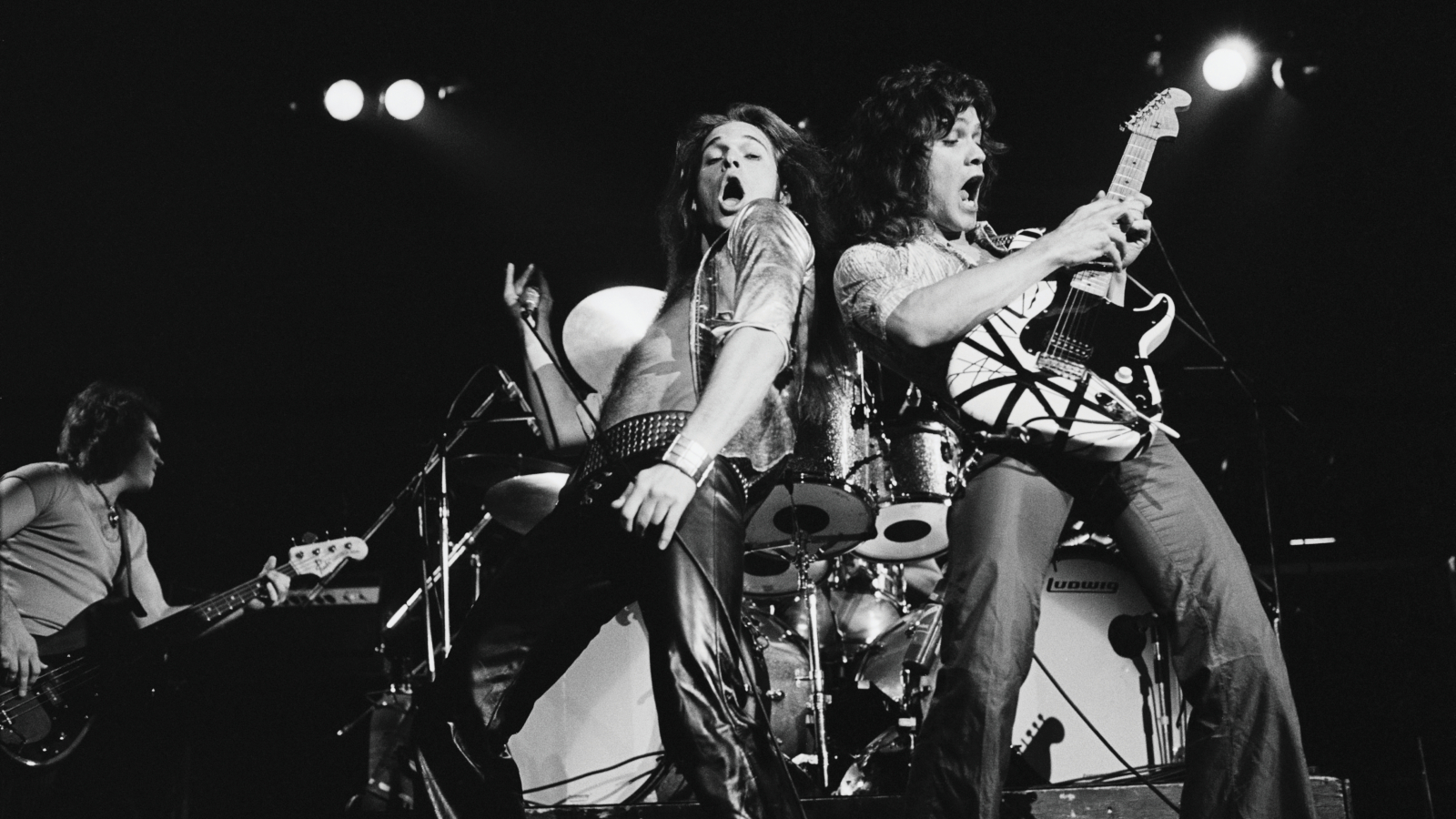
From his days as an artist with the ’60s band Harpers Bizarre to his multi-Platinum hit-making forays producing Van Halen, the Doobie Brothers, Aerosmith, Cheap Trick and Montrose, Ted Templeman has always been content to let the music do the talking.
But through all his many adventures, no one artist has had quite the impact that Van Halen did. In addition to signing the band to a contract with Warner Bros. Records, Templeman nurtured them through the making of their 1978 self-titled debut album and continued with the group through its most successful era.
In the following interview, Templeman reflects on how he first heard Van Halen and what went down during the preparation and creation of their ground-breaking debut record, an album that introduced Eddie Van Halen to the world and changed both guitar playing and hard rock.
Take us back to being invited to see Van Halen at the Starwood. What was your initial impression of the band?
Marshall Berle told me about them. I knew Marshall for a long time. He’s [comedian] Milton Berle’s nephew, and he was kind of managing them. He said, “Ted, these guys are hot. Why don’t you just get out there and see them?” So I went down there and went upstairs, so they wouldn’t see me. I was watching Ed playing and I thought, Shit! I’ve never seen anything like this.
I left – they didn’t even know I’d been there – and I called [Warner Bros. chairman and CEO] Mo Ostin, and I said, “You’ve got to go with me tomorrow night to see them. We’ve got to sign these guys. So I took him with me the next night. We went into the dressing room and said, “You’ve got a deal.” And there were other labels turning them down! They got turned down at A&M. Gene Simmons had taken them on, and they couldn’t get arrested. I told them that we’ve got to do a demo. So we went in and cut all their songs in one day, me and [engineer] Donn Landee. And we just went on from then. Bang!
Was it tough to convince the brass at Warner Brothers that this was a worthy band to sign, or did they trust your instincts?
All the latest guitar news, interviews, lessons, reviews, deals and more, direct to your inbox!
Well, I was vice president of the company. I don’t mean to be arrogant but I could have just signed them on the spot without anybody. But I wanted some enthusiasm, and I thought, I’ll bring the chairman of the board with me, and if he signed them he would go, “Hey, I signed those guys,” like he did with the Kinks or something like that. So it was a little bit of politics there too.
But the band! First of all, there was no guitar player who had ever played like that. God, I couldn’t believe it. But also, Dave’s lyrics were so creative. He had a sense of humor, and I’d never heard that unique situation where you have a heavy metal – sounding band with a sense of humor. Think of a song like “Ain’t Talking ’Bout Love”: “Ain’t talkin’ bout love / My love is rotten to the core.” [laughs] You know, who else is going to say, “You know you’re semi-good lookin’ and on the streets again”?
You’ve said “Ain’t Talking ‘Bout Love” is your favorite track you worked on as a producer. Why?
First of all, Ed’s guitar – that riff is incredible, and Donn got a great sound on it. Instantly, he tuned right in. And the lyrics are really brilliant, and Dave’s delivery is brilliant. And it’s got a really interesting solo on it. For some reason, out of anything I ever cut, I still love listening to that. And a lot of it is the intro. Ed’s guitar is amazing.
Didn’t Eddie double his guitar solo with an electric sitar?
Yeah, he doubled the solo, but that’s it. That was actually Donn’s idea, I think. We worked so closely together.
Donn [Landee] had a fix on the guitar and had great communication with Ed, and that was amazing. He could look at Ed and know what Ed wanted
Ted Templeman
Bring us into the sessions for Van Halen’s debut album, recorded at Sunset Sound. What was the process, working in the studio with the band?
First of all, we rehearsed them in the basement of Dave’s house in Pasadena. I got along with the guys really well, and the brothers [Ed and Alex] used to come over to my house to hang out. And we also benefitted from the fact that Donn and I had worked together for so long, and Donn had a fix on the guitar and had great communication with Ed, and that was amazing. He could look at Ed and know what Ed wanted. You can’t find that very often.
I think the Beatles were very lucky because their engineer Geoff Emerick was someone who could communicate with them. He’d know what McCartney would want in terms of the sound of his bass. If I’ve got an engineer like Donn Landee, it gives me freedom to think about the lyrics and all that. Donn could almost read Ed’s mind.
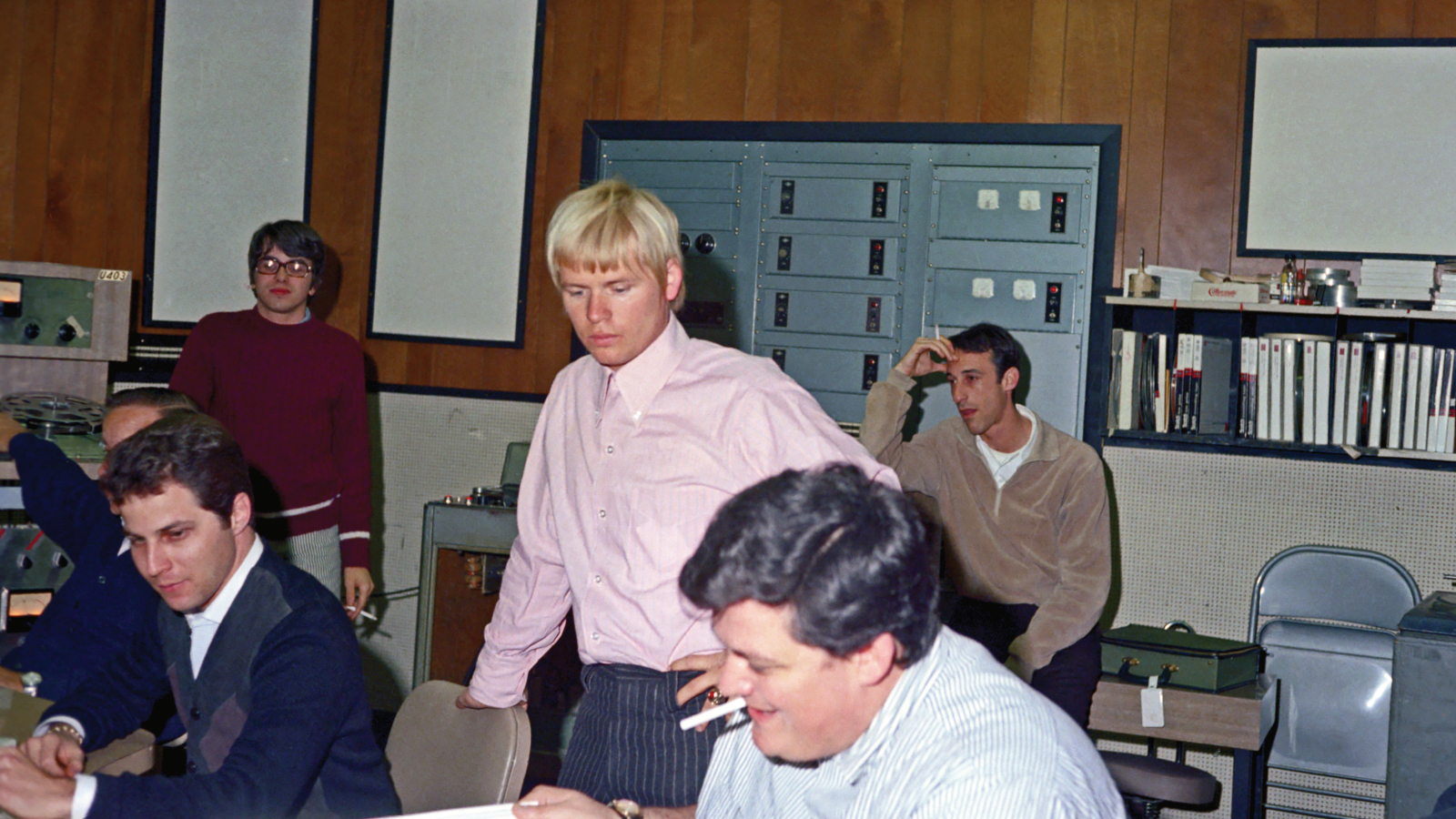
Did you cut the band live in the studio for that album?
Dave would sing with the band, and then we would go back and patch up his vocal. So the band and him were all playing together, whereas a lot of times people laid down tracks and then the singer would lay the vocal down. Dave was in the iso booth, where I could see him and he could see me, and the band was out in the studio. Everybody had eye contact. I made sure that Al and Ed could see Dave in the iso booth so they had eye contact, like they were used to.
So they were basically all playing live together. Then, I would go back and keep a lot of Dave’s vocals, patch him up, because he was singing with the band. It was basically like a live performance, especially on the first album.
And they were nailing final takes pretty quickly?
Oh god! Are you kidding? I think we did that record in less than two weeks. We went in there and bang, bang, bang, bang, bang! They’d been playing those songs live, and you know, I had an epiphany. The album was done, and I went over to where they were playing live at the Pasadena Civic Auditorium and they were playing “Ain’t Talking ’Bout Love.” The record wasn’t even out, and everybody in that place – there must have been about 2,000 people there – was singing along with the lyrics, goin’ “Hey, hey, hey, hey!” It was like the Beatles at the Cavern. These guys were like stars in Pasadena. I knew right then, Oh God, something is going on here.
“Eruption” is considered one of the greatest guitar solos of all time. Tell me about the origins of that.
I was in this little room making phone calls next to the recording studio, and I walked in and Ed was sitting there kind of playing it. And I went, “What’s that?” and he said, “It’s just something I warm up with before each show. And I said, “Donn, roll tape!” and he said, “I’m rolling.” He heard it too and he’d already pressed “record.” So it just went – boom – and we got it, just like that. I’d never heard anything like that. I’d never heard that kind of tapping. I’d never heard anything that brilliant, and Ed said, “No, it’s nothing.” He didn’t even know. In addition to being a genius, Ed is one of the sweetest guys on the planet. Such a nice guy. He wasn’t even gonna show it to me.
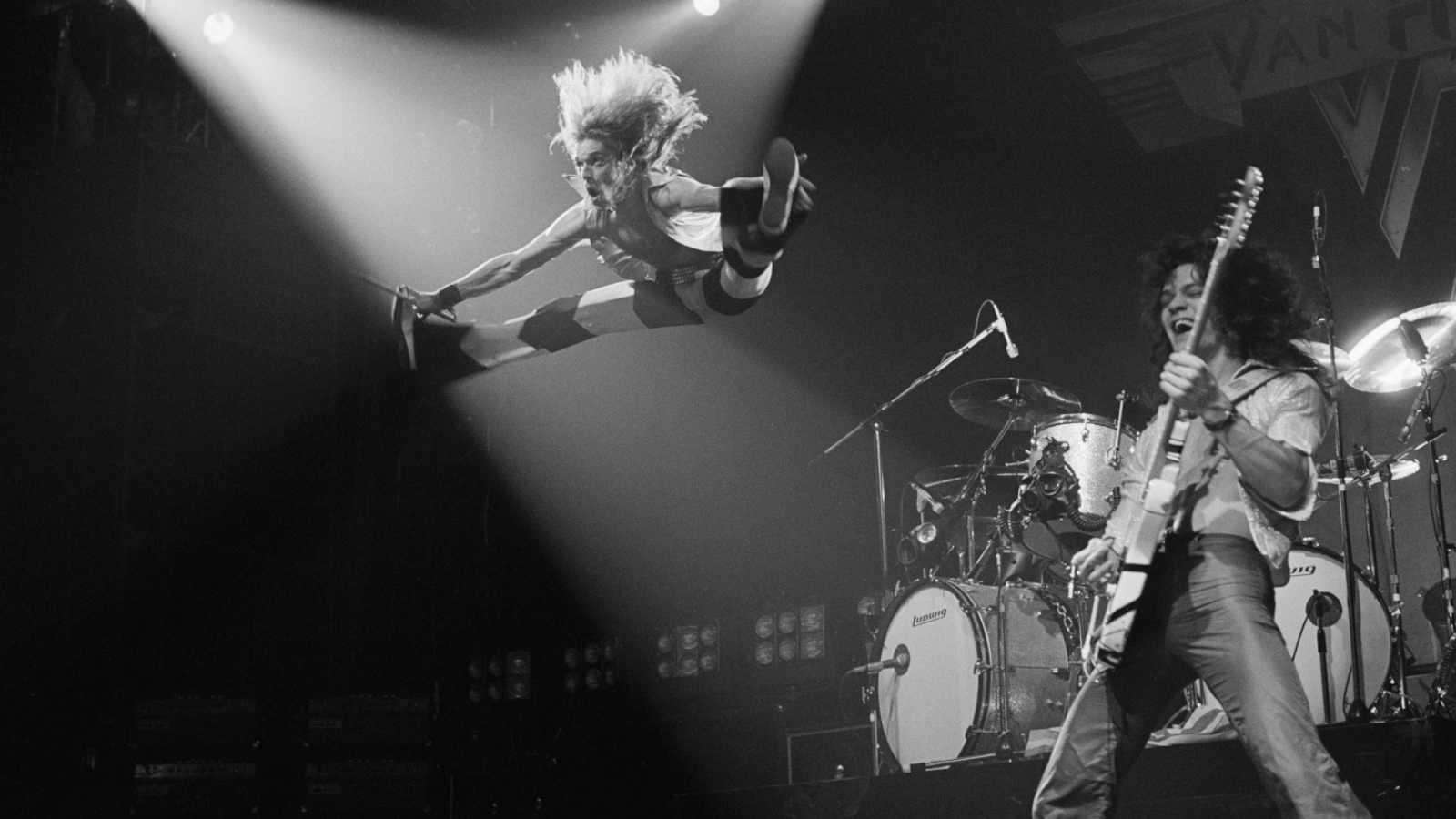
“I was so wrong on that song,” producer Ted Templeman tells GP. “Ed played me the riff and I went, ‘Uh… I don’t know. That’s so pop.’ He said, ‘But I like it and I’ve been working on this for a long time.’ So I said, ‘Okay, Dave, write some lyrics!’ So he got in the back of his red Mercury convertible and he wrote ‘Jump.’ And he said, ‘What do you think about this?’ and I said, ‘That sucks. That’s horrible. That sounds like somebody is going jump out of the window because he has so many issues.’ And Dave went, ‘No, “might as well jump” means for somebody to take a chance!’ So I said okay.
“He just wrote it instantly. He wrote that thing so fast, it’s ridiculous. But I didn’t hear it at first. Also, when Ed played me that riff, I thought, Oh man, that’s not Van Halen, that’s stadium music. [laughs] I wanted them to stay edgy the whole way. But Ed had the foresight.
“Late one night – and I’ve still got it – my answering machine went off, and it was Ed. He said, ‘Ted, we’ve got to play something for you.’ It was, like, three in the morning. He said, ‘Ted, I’m coming to get you,’ and he drove down in his Porsche and picked me up in Century City. He said, ‘What do you think?’ I thought it was great, but I just didn’t want them to quite go that way. But I was wrong. They made a number one record.”
You have such a high opinion of Eddie as a guitar player and have likened him to jazz greats like Charlie Parker and Dizzy Gillespie. What is it about Eddie that warrants such comparisons?
I will tell you exactly what it is. I think I first used the comparison to Art Tatum, because if you listen to him, it’s genius playing; and Charlie Parker, probably the hottest jazz player of all time. It’s about speed and accuracy and musical ability to go to the right notes, and I thought, for me, it’s Art Tatum, Charlie Parker and this kid, Ed. I don’t care what anybody says. I mean Allan Holdsworth could play really fast, but he couldn’t play those notes, ’cause Ed plays melodically but plays brilliant stuff fast.
So for me, those are the best musicians that I have heard and I’m a jazz player; I played trumpet, I played drums. Listen to an Art Tatum track or any Charlie Parker record, and you will hear that those two guys play crazy, fast and insane great stuff. And Ed was like the third guy, and that is why I made those comparisons.
Eddie doesn’t get as much credit as he should as a brilliant rhythm guitar player. Do you agree?
More so, because it is not just “rhythm guitar player.” Without those riffs there’s nothing to write melodies to. So he came up with [sings riff for “Ain’t Talking ’Bout Love”]. If he hadn’t written that riff, Dave couldn’t have written “Ain’t Talking ‘Bout Love.” You can go on and on. Ed’s riffs were of a song, so Dave would hear the riff and he would come up with a melody to go with it.
So, I mean, he was more than just a solo guitar player; he’s a songwriter with Dave. And you can’t minimize Dave’s lyrical ability, because without that, Van Halen wouldn’t have had the sense of humor.
Early on in the band’s career, you perceived David Lee Roth as kind of the weakest link in terms of his singing ability. What did you do to help him achieve his potential as a singer?
You know what? That’s been over-emphasized. It was one day. We went in there to do the demo and there were certain notes that were a problem for him to hit. They were out of his range, but his melody was great, and I was a little nervous, that’s all. But Dave had such great lyrical ability and everything else. I just hung in there. I remember it was just one day that I said that, but after that I just started talking to him more.
Dave is a really, really good singer and a brilliant lyricist and a brilliant melody writer. So just because he couldn’t hit certain notes, any producer would have been afraid. And the people that were looking at Van Halen before – like A&M Records, Gene Simmons – Dave’s voice scared them off. It wouldn’t be Van Halen if there was somebody to sing perfectly on pitch. It’s all fucked up. And that’s what makes them Van Halen.
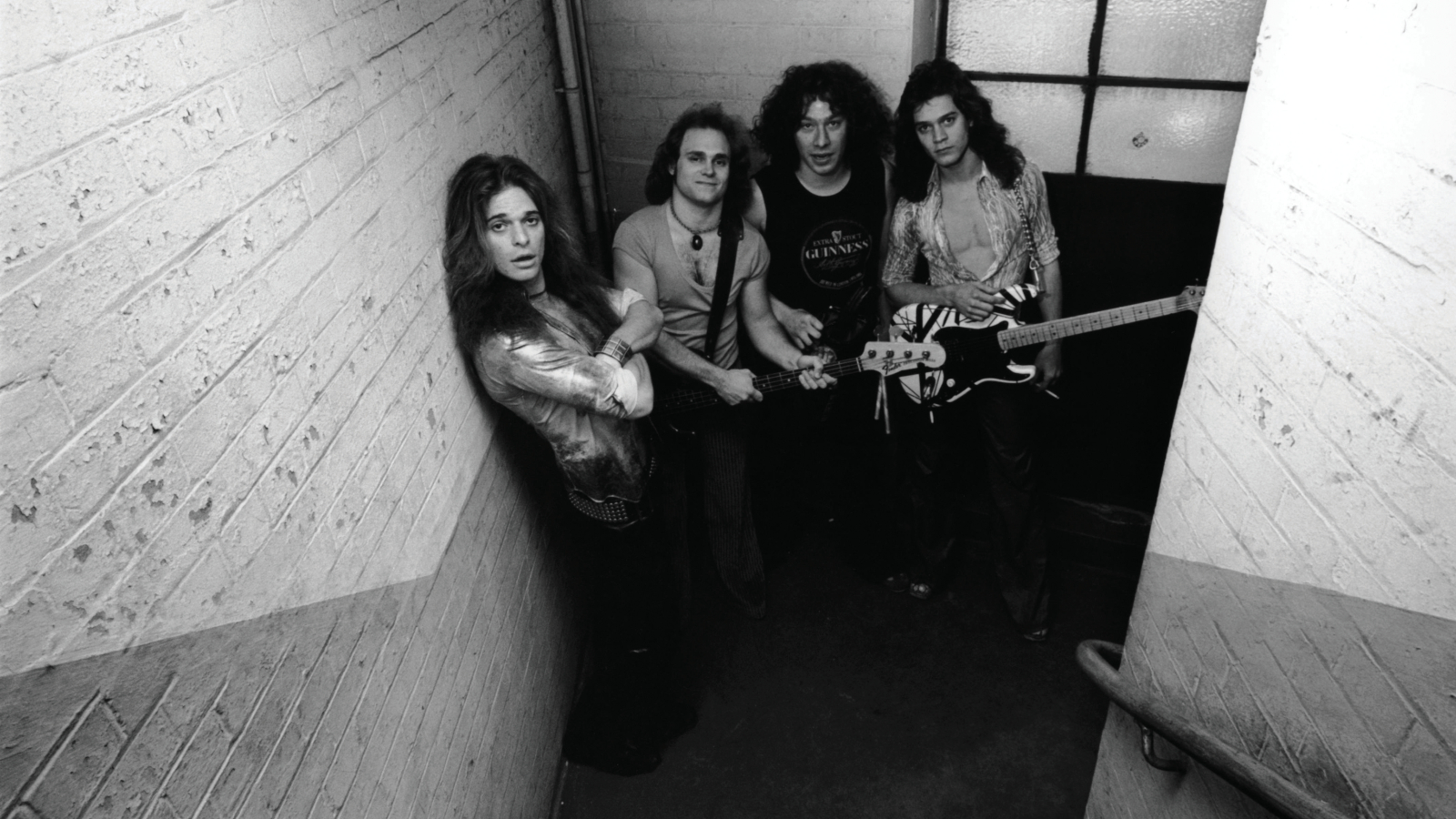
You’ve said your favorite guitar solo by Eddie is on “You’re No Good.” Why is that?
Because he emphasizes the lyrics. It’s ugly – it’s almost like revenge. It’s sad and angry and emphasizes the lyric and gets the point across. Obviously, it isn’t technically the best solo, and only Ed knew what his best solos are, but it works so well because it drives the point of the song home.
And he’s out there by himself; there’s no rhythm guitar behind him. There is a certain sadness and revenge to it, and I know that sounds weird, but take a listen to the original Betty Everett record. You think, Goddamn! Some bastard just ruined somebody’s life.
I told those guys, “I don’t know if you know the original Betty Everett song, but the lyric is, ‘I broke a heart that was gentle and true / I left a boy for someone like you.’” And so I told Ed, “When the chorus hits make your guitar playing like Psycho, like you’re stabbing somebody.” I told Dave, “Scream like in Psycho, like you’re stabbing somebody.” I wanted it to be like, Let’s kill this fucker who’s no good! [laughs]
